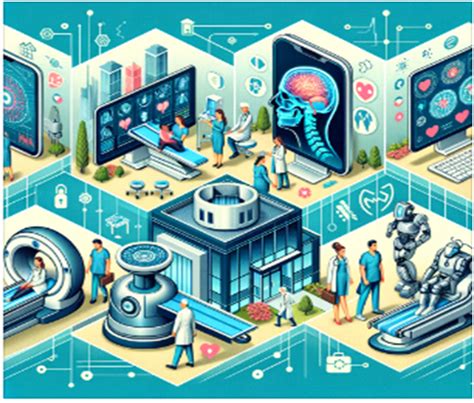The world of technology is constantly evolving, and one of the most significant advancements in recent years is the emergence of Spark technology. Spark, an open-source data processing engine, has been making waves across various industries, transforming the way businesses operate and make decisions. In this article, we will explore the seven ways Spark technology is revolutionizing industries.

1. Data Processing and Analytics
Spark technology has revolutionized the way businesses process and analyze large datasets. With its in-memory processing capabilities, Spark can handle massive amounts of data at incredible speeds, making it an ideal solution for businesses that rely heavily on data-driven decision-making. Spark's ability to process data in real-time has enabled businesses to respond quickly to changing market conditions, customer needs, and other factors that impact their operations.
Benefits of Spark in Data Processing and Analytics
- Faster data processing and analysis
- Improved data quality and accuracy
- Enhanced business decision-making
- Increased efficiency and productivity

2. Machine Learning and Artificial Intelligence
Spark technology has also made significant contributions to the field of machine learning and artificial intelligence. Spark's MLlib library provides a wide range of algorithms and tools for building and deploying machine learning models. With Spark, businesses can develop and train machine learning models on large datasets, enabling them to make more accurate predictions and decisions.
Benefits of Spark in Machine Learning and Artificial Intelligence
- Improved accuracy and efficiency in machine learning model development
- Enhanced predictive analytics capabilities
- Increased automation and decision-making
- Better customer experiences through personalized recommendations

3. Internet of Things (IoT) and Real-Time Data Processing
The Internet of Things (IoT) has generated a massive amount of data from various devices and sensors. Spark technology has made it possible to process and analyze this data in real-time, enabling businesses to respond quickly to changing conditions and make data-driven decisions. Spark's ability to handle streaming data from IoT devices has opened up new opportunities for businesses to innovate and improve their operations.
Benefits of Spark in IoT and Real-Time Data Processing
- Real-time data processing and analysis
- Improved decision-making and responsiveness
- Enhanced operational efficiency and productivity
- New business opportunities through IoT innovation

4. Cloud Computing and Scalability
Spark technology has made it possible for businesses to scale their data processing and analytics capabilities with ease. Spark's ability to run on cloud infrastructure has enabled businesses to process large datasets without the need for expensive hardware upgrades. With Spark, businesses can scale their operations up or down as needed, making it an ideal solution for businesses with fluctuating data processing needs.
Benefits of Spark in Cloud Computing and Scalability
- Scalable data processing and analytics capabilities
- Reduced hardware costs and improved efficiency
- Increased flexibility and responsiveness
- Better decision-making through data-driven insights

5. Cybersecurity and Data Protection
Spark technology has also made significant contributions to the field of cybersecurity and data protection. Spark's built-in security features and encryption capabilities have made it an ideal solution for businesses that handle sensitive data. With Spark, businesses can protect their data from unauthorized access and ensure that their data processing and analytics operations are secure.
Benefits of Spark in Cybersecurity and Data Protection
- Improved data security and protection
- Enhanced compliance with regulatory requirements
- Reduced risk of data breaches and cyber attacks
- Better data governance and management

6. Business Intelligence and Data Visualization
Spark technology has also enabled businesses to create interactive and dynamic data visualizations that provide insights into their operations. Spark's built-in data visualization capabilities have made it an ideal solution for businesses that need to communicate complex data insights to stakeholders. With Spark, businesses can create interactive dashboards and reports that provide real-time insights into their operations.
Benefits of Spark in Business Intelligence and Data Visualization
- Improved data visualization and communication
- Enhanced business decision-making
- Increased efficiency and productivity
- Better stakeholder engagement and reporting

7. Research and Development
Finally, Spark technology has also enabled researchers and developers to create new and innovative applications that were previously impossible. Spark's ability to process large datasets and handle complex data processing tasks has made it an ideal solution for researchers and developers who need to analyze and process large datasets. With Spark, researchers and developers can create new applications and services that were previously impossible, enabling innovation and progress in various fields.
Benefits of Spark in Research and Development
- Improved research and development capabilities
- Enhanced innovation and progress
- Increased efficiency and productivity
- New applications and services that were previously impossible







What is Spark technology?
+Spark technology is an open-source data processing engine that enables businesses to process and analyze large datasets with ease.
What are the benefits of using Spark technology?
+The benefits of using Spark technology include faster data processing and analysis, improved data quality and accuracy, enhanced business decision-making, and increased efficiency and productivity.
What industries can benefit from Spark technology?
+Spark technology can benefit various industries, including finance, healthcare, retail, and more.
